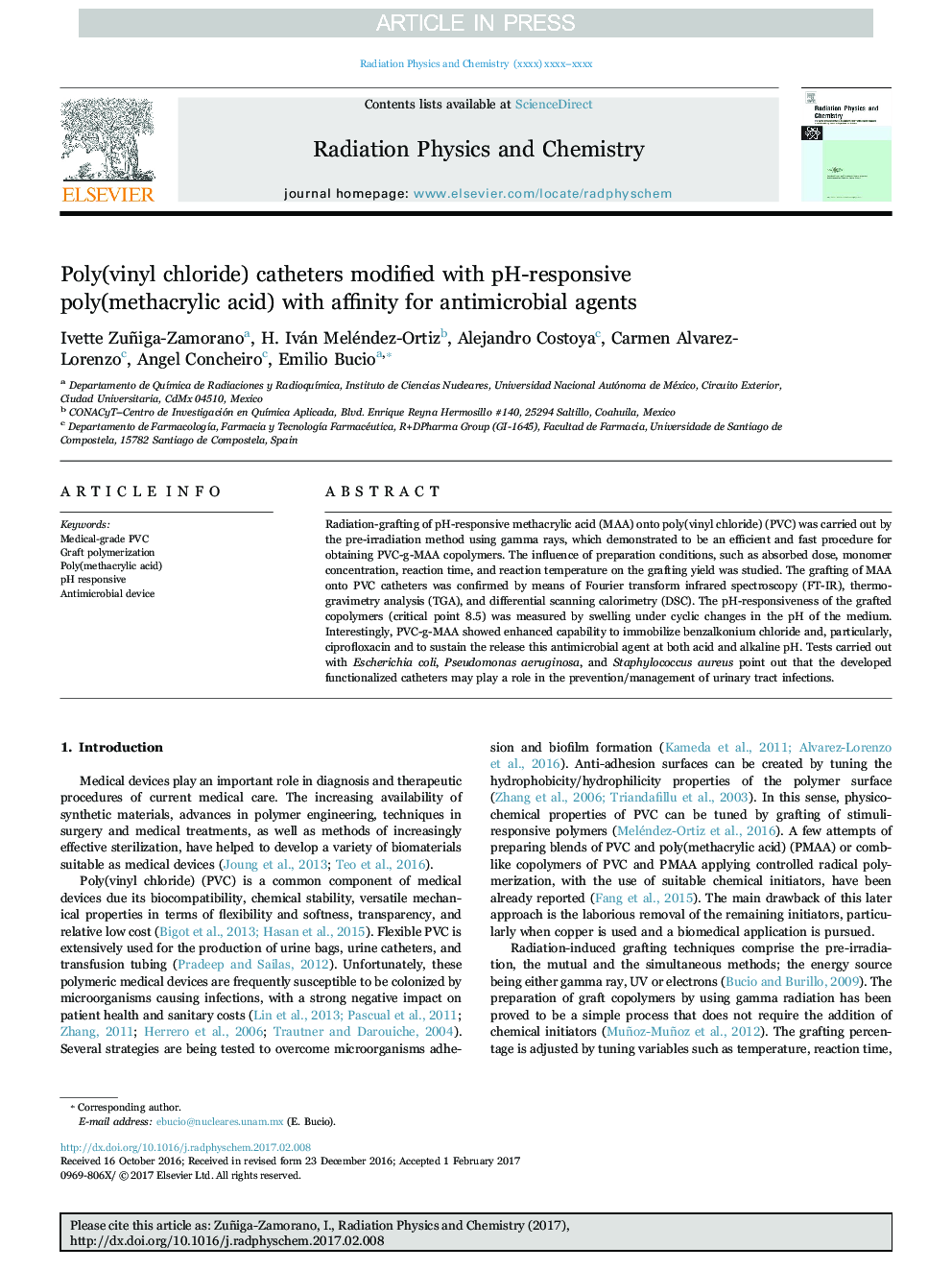| Article ID | Journal | Published Year | Pages | File Type |
|---|---|---|---|---|
| 8251842 | Radiation Physics and Chemistry | 2018 | 8 Pages |
Abstract
Radiation-grafting of pH-responsive methacrylic acid (MAA) onto poly(vinyl chloride) (PVC) was carried out by the pre-irradiation method using gamma rays, which demonstrated to be an efficient and fast procedure for obtaining PVC-g-MAA copolymers. The influence of preparation conditions, such as absorbed dose, monomer concentration, reaction time, and reaction temperature on the grafting yield was studied. The grafting of MAA onto PVC catheters was confirmed by means of Fourier transform infrared spectroscopy (FT-IR), thermogravimetry analysis (TGA), and differential scanning calorimetry (DSC). The pH-responsiveness of the grafted copolymers (critical point 8.5) was measured by swelling under cyclic changes in the pH of the medium. Interestingly, PVC-g-MAA showed enhanced capability to immobilize benzalkonium chloride and, particularly, ciprofloxacin and to sustain the release this antimicrobial agent at both acid and alkaline pH. Tests carried out with Escherichia coli, Pseudomonas aeruginosa, and Staphylococcus aureus point out that the developed functionalized catheters may play a role in the prevention/management of urinary tract infections.
Related Topics
Physical Sciences and Engineering
Physics and Astronomy
Radiation
Authors
Ivette Zuñiga-Zamorano, H. Iván Meléndez-Ortiz, Alejandro Costoya, Carmen Alvarez-Lorenzo, Angel Concheiro, Emilio Bucio,
